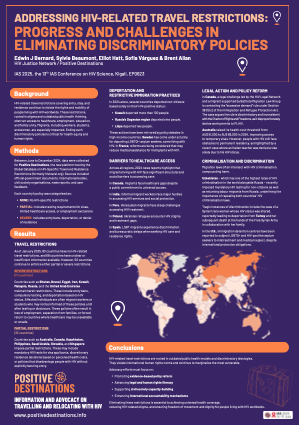Amnesty urges Turkey to reinstate legal status of Syrian asylum seeker diagnosed with HIV.
Amnesty International has called on Turkish authorities to immediately restore the temporary protection status of Syrian asylum seeker Ahmad Aabo, who remains without access to essential medical care despite a court decision lifting his deportation order and related security restrictions.
Aabo, 29, has lived in Turkey since 2012, when he arrived as an unaccompanied minor fleeing persecution based on his perceived sexual orientation. He was granted temporary protection in 2017. However, in 2023, shortly after being diagnosed with HIV, Aabo’s legal status was revoked following the assignment of a G-78 security code on the grounds that he carried a “communicable disease.”
Since 2014 Syrians seeking protection in Turkey are registered as asylum seekers under temporary protection, a status that gives them access to services including health, education and social services and have the right to work under the Temporary Protection Regulations.
Article 12 of the Temporary Protection Regulations outlines the circumstances in which temporary protection may be removed, none of which includes the presence of a communicable disease.
In 2024 Aabo was detained for six months in İstanbul and Adana removal centers. He has reported being held in isolation and subjected to inhumane and degrading treatment, including verbal abuse and having food thrown at him through his cell door, mistreatment he believes was motivated by discrimination related to his HIV status and sexual orientation.
Although Turkish authorities lifted the G-78 security code and rescinded the deportation order in October 2024, Aabo’s temporary protection has not been reinstated. His most recent application was rejected in December 2024 on the grounds of posing a “threat to public order and security.” Appeals to suspend the decision were dismissed in January and June, and his substantive appeal remains pending before an İstanbul administrative court.
Without legal status, Aabo has been unable to access free antiretroviral medication or medical monitoring, placing his health at serious risk, Amnesty said. He was denied treatment for over three months while in detention but eventually managed to receive medication in July 2024 that brought his viral load under control.
Call to action
Amnesty International said Turkish law does not allow for the withdrawal of temporary protection based on communicable disease. Furthermore, as a signatory to the International Covenant on Economic, Social and Cultural Rights, Turkey is obligated to ensure non-discriminatory access to healthcare.
In a letter to Hüseyin Kök, the head of Turkey’s Presidency of Migration Management, Amnesty urged the immediate restoration of Aabo’s legal status and access to healthcare.
“Ahmad Aabo’s health and wellbeing remain at serious risk. Turkish authorities must act now to ensure his rights are protected,” the organization said.
A report by Syrians for Truth & Justice (STJ) in April, based on firsthand testimony from 19 former detainees held in centers across Turkey in 2024, documented widespread violence, including beatings and deprivation of basic necessities. The report revealed that Syrian refugees in Turkish detention centers faced physical abuse and were allegedly coerced into signing “voluntary” return documents.
Turkey has granted legal status to approximately 3.5 million Syrian nationals who fled the civil war in Syria that began in 2011. Initially welcomed under a temporary protection policy, many Syrians settled in Turkish cities, sparking debates about integration, economic strain and cultural differences.
At the end of 2024, Turkey hosted nearly 2.9 million registered Syrian refugees and asylum seekers. Although returns had remained low for years, 2025 brought a sharp reversal with the ouster of Syrian president Bashar al-Assad in December 2024.
More than 200,000 Syrians have returned to their homeland from Turkey since the fall of the Assad regime, according to Turkish authorities.

